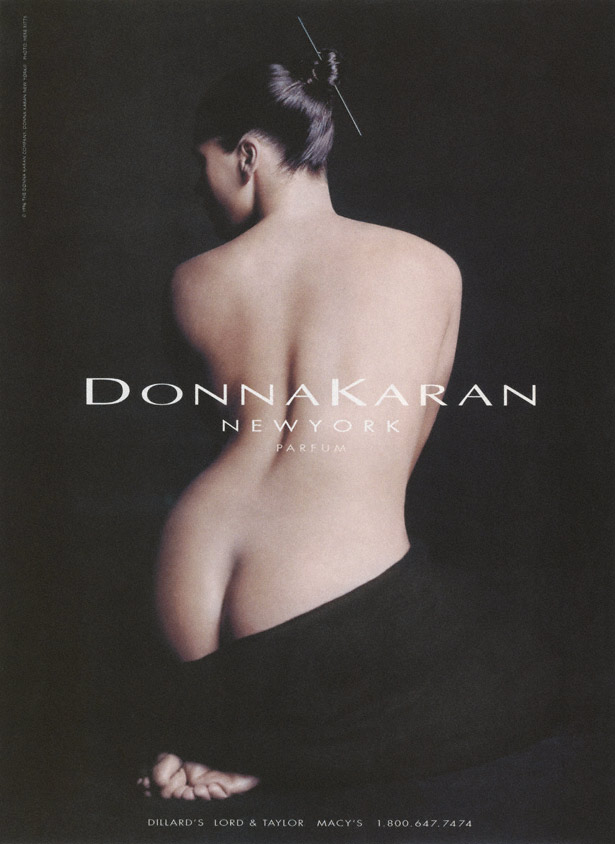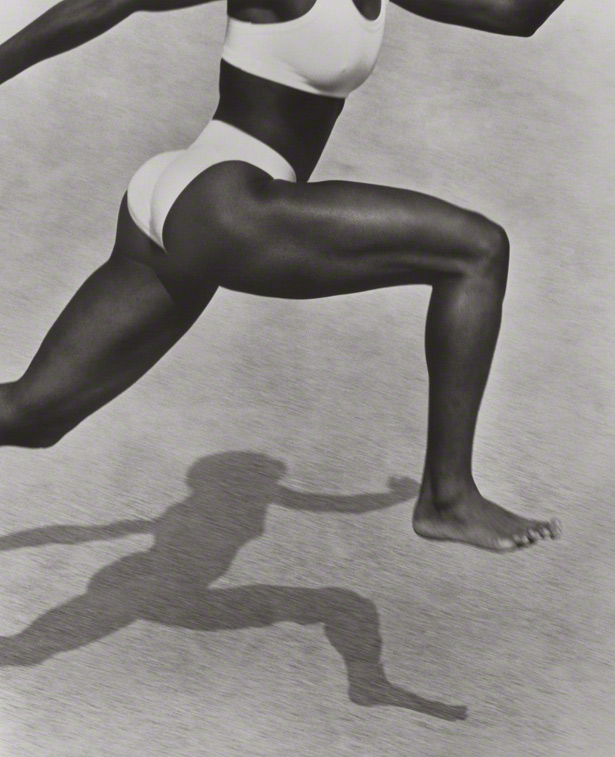
Carré in Profile, Paradise Cove, 1989, Herb Ritts. Courtesy of and © Herb Ritts Foundation
You’ve seen them on billboards, magazines, and TV—images of young, thin, overtly seductive women posed to sell. Herb Ritts photographed the world’s top models for ads and fashion spreads, but his women are different. Though beautiful, they have strength and self-possession. When nude, they combine the dignity of marble sculpture with flesh that sweats, moves, and breathes.
Model and actress Carré Otis was one of these women. For The Iris Carré shared how it felt to work with Ritts, who had a rare ability to make his models feel safe even as he was asking them to take physical and emotional risks.
She described a day on the set this way:
You’d have the agenda for the day with the clothes you were supposed to shoot, but with Herb, there’d be an aha moment where he would see something and, in the sweetest of ways, ask, “Could you take off your clothes?” There was always a moment where it would turn into what Herb saw, and you would have an opportunity to really create art with him.
With Herb it was safe to open up and reveal what was going on in my heart and in my head. He wanted to see who you were inside, and that created a relationship so that he could snap these photos that are very open and very vulnerable—in an open, raw sense, not a sorrowful sense—of the human spirit.

Carré Otis in Donna Karan Fragrance Campaign, loose tear sheet by Herb Ritts, 1989. Courtesy of and © Herb Ritts Foundation
Because the human spirit was Ritts’s real subject, he depicted the body with reverence. Carré explained:
I had a very profound sense with Herb that he truly loved and honored women and bodies. And not all men, gay or straight, have that experience toward the feminine. With Herb, he reenacted an archetype of the goddess, and you felt that on the set. Even though he may have been asking you to pose in front of a volcano that was about to explode—and more often than not, completely naked!—there was a safety with Herb. The way he saw the human body, and the elements that he chose—whether it was contrasts of black and white, or a stone he had you photograph with, or grains of sand stuck to your face—it all coalesced to create unbelievably profound images, and I think profound out of the simplicity of what he saw, and what he wanted to show his audience.
With other photographers there was such a forced sexuality that you sometimes felt like a blow-up doll. That would never have happened with Herb. There was no forced idea of what any of us should have been. He shot in celebration of the diversity of the female form and represented the divine aspects of the feminine.
This diversity appears across Ritts’s women—Elizabeth Taylor with a scar from brain surgery, Juliet Man Ray with an eye patch, Jackie Joyner-Kersee in powerful stride.

Jackie Joyner-Kersee, Point Dume, 1987, Herb Ritts. The J. Paul Getty Museum, 2012.23.5. Gift of Herb Ritts Foundation. © Herb Ritts Foundation
For Carré, who has written candidly about her struggles with self-acceptance, showing the full range of women’s bodies and experiences in this way isn’t just an aesthetic choice. It’s an ethical choice, and one she has made her personal mission. She feels the loss of Ritts, who died in 2002, keenly. “I look back at working with Herb and really appreciate how clean the energy was that he brought to this work,” she said. “Times have changed.”
The clean energy Ritts brought to his shoots is palpable in all his work, from his commercial fashion photos to the music videos playing in Herb Ritts: L.A. Style. It explains why we leave the exhibition feeling just a bit more beautiful, a bit more alive.
_______
Herb Ritts: L.A. Style closes Sunday, September 2 (extended from August 26) at the Getty Center. It travels to the Cincinnati Museum of Art (October 6–December 30, 2012) and then to the Ringling Museum of Art in Sarasota, Florida (February 23–May 19, 2013).




WoW
The collaboration of 2 giants in the fashion industry.
Honest, simple and full of integrity. This is the rawness of the industry we all loved to love.
This is what we bought into. This is why we bought.
LEGENDS!
xx
With other photographers there was such a forced sexuality that you sometimes felt like a blow-up doll. That would never have happened with Herb. There was no forced idea of what any of us should have been.that’s good not forced more humane.